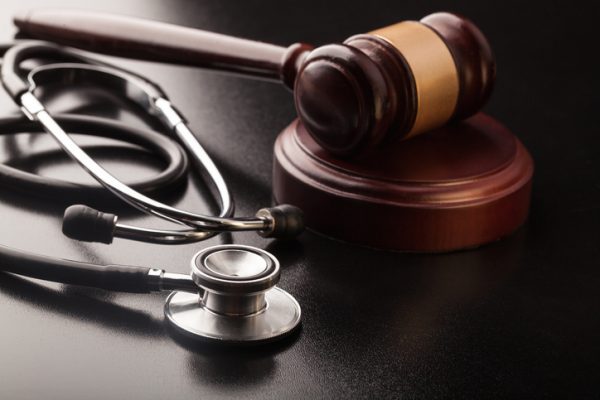
For many Medicaid members, circumstances like eviction, past criminal convictions and a suspended driver’s license can stand in the way of better health and a pathway to a better life.
Social determinants like stable housing, food insecurity and transportation are often accompanied by legal challenges which act as civic barriers to accessing healthcare and maintaining general well-being.
A yearlong pilot program funded by Anthem in Indiana is looking to give Medicaid patients a leg-up in handling these issues by connecting them to legal counseling for housing issues, incomes support, employment and family law.
Through a grant to the Indiana Legal Services, Anthem is expanding access to free legal services to all Medicaid patients in 18 counties in Central Indiana. Access is not limited to Anthem members and all Medicaid beneficiaries in the region are eligible for help, regardless of their membership in managed care or fee-for-service programs.
“In coordinating care for our members and digging through some of their challenges, we found there are barriers that can certainly impact their health and well being, but are not thought about as being traditionally health related,” said Kimberly Roop, Medicaid plan president at Anthem Indiana.
Roop said her team identified a particular need around housing and giving members the legal resources to fight against unjust evictions, force landlords to fix unsafe or illegal housing conditions and assisting those with criminal records to find housing.

Reducing Clinical and Staff Burnout with AI Automation
As technology advances, AI-powered tools will increasingly reduce the administrative burdens on healthcare providers.
Providing vulnerable patients legal resources is often done through a framework known as medical-legal partnerships and are generally centered around a particular site of care. Where Anthem’s collaboration with Indiana Legal Services differs is by expanding access past a single clinic, hospital or health system and to the larger Medicaid population.
Medical-legal partnerships have been shown to improve the health outcomes for patients. One 2017 study published in Health Affairs found that access to medical-legal partnerships among low-income and homeless veterans not only led to success in their legal goals, but also a reduction in their negative mental health symptoms.
Jay Chaudhary, the director of medical-legal partnerships at Indiana Legal Services helped establish the first medical-legal partnership in the state and has seen the programs grow as part of healthcare organizations’ efforts to address social determinants of health.
“We act a multiplier that enhances the impact of the array of services available as we remove the barriers to care for treatment,” Chaudhary said. “This funding is expanding our ability to handle the legal issues that have a correlation with health.”
Besides issues with housing, Chaudhary said other major areas of focus include assisting victims of domestic violence and adjustments to child support payments.
While the majority of medical-legal partnerships have been seeded by providers, payers organizations like Anthem have increasingly taken up the baton as the programs have gained more legitimacy. One illustrative example was the requirement in North Carolina’s RFP for its managed Medicaid program to provide access to medical-legal partnerships.
Chaudhary said that the organization has been working to get the word out with community partners who treat and manage the Medicaid population, as well as Anthem community health workers, to develop a referral pathway to legal services.
Legal issues that act as a potential barrier to employment have become particularly salient in Indiana, as the state has established work requirements for certain individuals to keep their Medicaid coverage.
While the partnership is not meant specifically to help members become eligible for Medicaid, the program can be used to handle workplace issues or other legal concerns that prevent individuals from finding and keeping employment.
“I think there’s a clear relationship between what we do and the work requirements,” Chaudhary said, highlighting the organization’s work to help individuals expunge their criminal records and reinstate suspended driver’s licenses.
Indiana is no stranger the opioid epidemic sweeping the nation and has seen year-over-year increases hospitalizations due to drug use as well as drug overdose deaths. The problem is particularly severe among some pockets of the Medicaid population.
Chaudhary said part of Indiana Legal Services role is to combat stigma as individuals start their journey to recovery. In one instance, the group helped a mother keep custody of her child while going through medication-assisted treatment for her substance abuse disorder.
The ultimate goal, according to Roop, is to prove out the idea that access to free legal services doesn’t just have a positive effective in the courtroom, but also supports health and well being by lowering hospitalizations and boosting access and adherence to recovery programs.
“Within legal services our impact is tangible and concrete in ways that I don’t think is the case with a lot of interventions meant to address social determinants,” Chaudhary said.
“I stress to my team we work best when we’re a true part of the treatment team and there’s no difference between referring to our services and making a referral to radiology or social work.”
Photo: artisteer, Getty Images










